Late Walking in Babies: 7 Common Reasons

- Most babies start walking by around 12 months of age.
- Not walking by 18 months of age is considered delayed walking.
- Neurological, muscular, and cognitive delays may cause late walking in babies.
- Physical therapy and providing opportunities to practice can help your baby learn to walk more quickly.
Babies’ first steps are a huge milestone in their physical development. Parents often anxiously await the day that their child will start walking, keeping their cameras ready to capture the big moment.
While each child develops and learns at a different pace, some babies take an exceptionally long time to learn to walk. It can be tempting to compare your child with other children in your social circle or expect them to walk around at the same time as their older siblings.
If your baby is late to start walking, he might just be a cautious baby by nature. However, there are some more serious causes of late walking in babies that you should be aware of.
Since late walking in babies has so many different causes, you’ll need to look for other symptoms to best learn how to help your baby.
7 Reasons for Late Walking in Babies
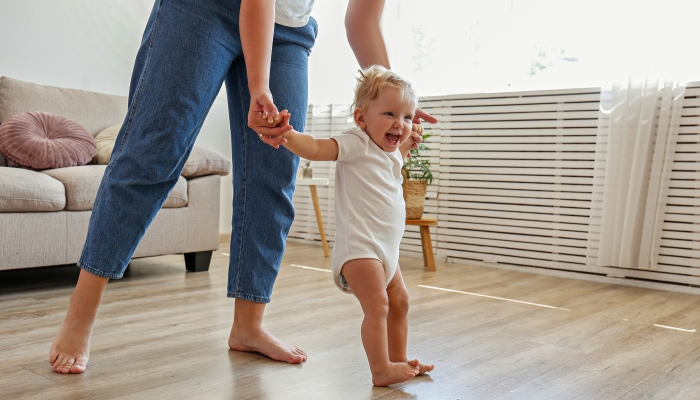
Without a complete picture, it’s impossible to say why your baby isn’t walking when you might expect them to. All of the reasons for late walking in babies have other signs that can give you more information.
Low Birth Weight
Infants with a low birth weight are at a higher risk for delayed walking, cognitive delays, and delayed fine motor skills, according to a 2017 study11. Oudgenoeg-Paz, O., Mulder, H., Jongmans, M. J., van der Ham, I. J. M., & Van der Stigchel, S.. The link between motor and cognitive development in children born preterm and/or with low birth weight: A review of current evidence. Neuroscience & Biobehavioral Reviews. 2017;80, 382–393. https://doi.org/10.1016/j.neubiorev.2017.06.009 published by Oudgenoeg-Paz et al. in Neuroscience and Biobehavioral Reviews. Keeping an eye on your baby’s development can help you identify delays early and get your baby the help they need.
Prematurity
If your baby was born premature, your pediatrician may recommend monitoring their development using a corrected age22. Corrected Age For Preemies. HealthyChildren.org. 2018. https://www.healthychildren.org/English/ages-stages/baby/preemie/Pages/Corrected-Age-For-Preemies.aspx. Since premature babies do not have a chance to finish developing before birth, it’s not always reasonable to expect them to hit milestones according to their age.
Corrected age is calculated by beginning with your baby’s actual age in weeks (number of weeks since the date of birth) and then subtracting the number of weeks your baby was preterm. For example, if your baby was born 4 months ago, but came 2 months early, their corrected age is 2 months old.
Genetic Conditions
Many conditions cause developmental delays that include late walking in children. Genetic conditions like Down’s Syndrome, Hereditary Spastic Hypoplasia, and other genetic conditions can cause both cognitive and physical delays.
Prolonged Illness or Hospitalization
Children who have long hospitalizations or periods of illness may have slower development and struggle with poor muscle tone. Spending significant amounts of time in bed or with restricted movement can make it difficult to gain strength, balance, and coordination.
Neuromuscular Conditions
Parents of children with delayed walking may be worried about potential neurological problems in their children. While this is a potential problem, less than 10% of infants with delayed walking are diagnosed with a serious neurological condition, according to the report Assessing developmental delay33. Dorling, J., & Salt, A.. Evidence based case report: Assessing developmental delay. BMJ. 2001;323(7305), 148–149. https://doi.org/10.1136/bmj.323.7305.148 by Dorling and Salt published in the British Medical Journal. Of those 10%, the most common conditions included cerebral palsy and muscular dystrophy.
Personality
Some kids are simply more cautious than others. If your child seems to have the strength to stand up, is meeting all other developmental milestones, and just doesn’t want to let go of the furniture to move, there’s a good chance that they’re just taking their time to feel comfortable. These children may need extra encouragement and motivation to take that first step.
Physical Challenges
Babies with weak legs, severely bowed legs, clubfoot, hip dysplasia, or pigeon-toed stance may struggle with balance and walking. The underlying cause of the physical problem can usually be treated with medical interventions like vitamin D supplements, corrective braces, or surgery.
How to Tell if Your Baby Is a Late Walker

As your baby gets older, you can watch for these gross motor skills to develop. If your baby is missing expected milestones by a few weeks or more, talk to your pediatrician about your baby’s development.
| Age | Milestone | Description |
| 3 Months | Holds head steady | While being held in a sitting position, baby can keep their head steady and use their neck muscles to look from side to side. |
| 6 Months | Rolls in both directions | Can roll from back to belly and from belly to back without assistance. |
| 12 Months | Crawling | Moves forward or backward on hands and knees. Can get from a sitting to a kneeling position. |
| 18 Months | Independent walking | Baby can stand up and walk without holding on to anything |
According to experts at the Cleveland Clinic44. When Do Babies Start Walking? Cleveland Clinic. 2021. https://health.clevelandclinic.org/when-do-babies-start-walking, most babies begin walking around 12 months of age. If your baby cannot walk independently by 18 months of age, this is considered delayed walking.
Should You Worry if Your Baby Is Not Walking Yet?
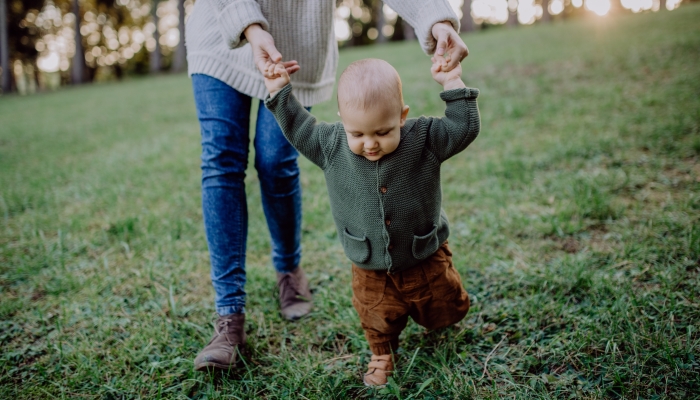
Not all babies learn to walk at the same age. Some little ones are running around as early as nine months old, while others aren’t confident walkers until closer to 18 months. Your baby may skip crawling in favor of walking or may refuse to let go of the furniture to take their first steps.
It’s more important to monitor all gross motor skills than to put too much emphasis on delayed walking alone.
Unless your baby is missing several developmental milestones, try not to worry too much about delayed walking.
If your 18-month-old is not walking yet, these other signs may indicate a developmental delay or a more serious problem:
- Poor language development
- Low muscle tone
- Not making eye contact or interacting with others
- Missing other motor skills like crawling or rolling over
- Poor weight gain or growth
- Bowed legs or pigeon-toe standing
If you notice any of these signs, talk to your child’s pediatrician about possible developmental delays or physical disabilities.
What Can You Do if Your Baby Isn’t Walking Yet?
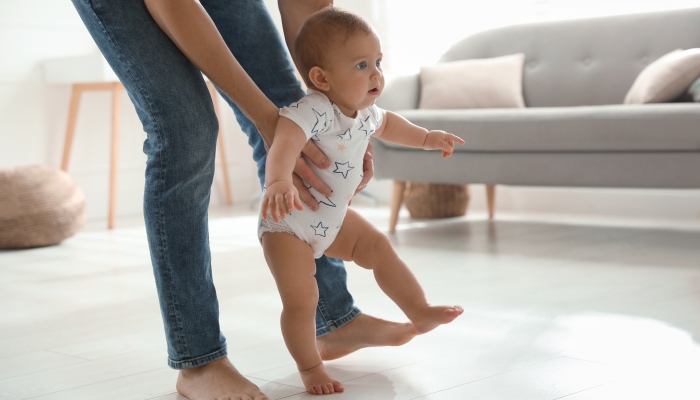
Often, late walking is a temporary problem that can be corrected with behavioral or medical interventions.
At Home
If your baby isn’t walking yet, there are a few things you can do to encourage them to walk. You can motivate your baby to walk by placing their favorite toys just out of reach, or standing a few feet away while calling them over.
Help your baby develop strength in their leg muscles by taking them to the pool and encouraging them to begin pulling themselves up to stand with furniture. You can also help your baby by offering them a push toy or a baby jumper, as long as they’re the correct size for your baby.
Medical Interventions
If your child has a severe delay or a medical condition that makes it difficult for them to walk, you may need to seek the help of a physical therapist or medical provider. Options for children with walking delays include:
- Splits or braces
- Physical therapy
- Occupational therapy
- Medication for neurological disorders
- Adaptive tools such as walkers
- Corrective surgery
Of course, you should consult with a team of pediatricians, physical therapists, and child development experts if you feel that your child needs medical interventions.
When to Seek Professional Help
You should discuss your child’s development at each well-check with your pediatrician. Usually, healthy children should have a check-up at least six times before their first birthday. The Office of Disease Prevention and Health Promotion55. Make the Most of Your Baby’s Visit to the Doctor (Ages 0 to 11 Months). Office of Disease Prevention and Health Promotion. 2023. https://health.gov/myhealthfinder/doctor-visits/regular-checkups/make-most-your-babys-visit-doctor-ages-0-11-months recommends that babies have wellness check-ups at 1, 2, 4, 6, 9, and 12 months of age.
If you have concerns about delayed walking, you can discuss this with your pediatrician at your baby’s wellness check-ups. Most pediatricians can identify early indicators of poor muscle tone or neurological disorders during routine visits.
FAQs
What are red flags or warning signs that indicate a potential developmental delay or motor impairment related to walking?
You should begin to watch for signs of normal development from the time your baby is a few weeks old. If your infant isn’t hitting normal gross motor skill milestones by 3, 6, and 9 months, they may also end up being a delayed walker.
How can I create a safe environment for my baby to explore and practice walking?
Allowing your baby the chance to walk and explore is one of the best things you can do for them. Supervise your baby as they start to pull themselves up on furniture, and keep them away from sharp corners in case they fall.
Babies will frequently fall backward onto their bottoms while they learn how to walk. This is perfectly normal, and will not cause any pain or injury.
References
- Oudgenoeg-Paz, O., Mulder, H., Jongmans, M. J., van der Ham, I. J. M., & Van der Stigchel, S. (2017). The link between motor and cognitive development in children born preterm and/or with low birth weight: A review of current evidence. Neuroscience & Biobehavioral Reviews, 80, 382–393. https://doi.org/10.1016/j.neubiorev.2017.06.009
- Corrected Age For Preemies. HealthyChildren.org. (2018, December 10). https://www.healthychildren.org/English/ages-stages/baby/preemie/Pages/Corrected-Age-For-Preemies.aspx
- Dorling, J., & Salt, A. (2001). Evidence based case report: Assessing developmental delay. BMJ, 323(7305), 148–149. https://doi.org/10.1136/bmj.323.7305.148
- When Do Babies Start Walking? Cleveland Clinic. (2021, July 22). https://health.clevelandclinic.org/when-do-babies-start-walking
- Make the Most of Your Baby’s Visit to the Doctor (Ages 0 to 11 Months). Office of Disease Prevention and Health Promotion. (2023, March 30). https://health.gov/myhealthfinder/doctor-visits/regular-checkups/make-most-your-babys-visit-doctor-ages-0-11-months
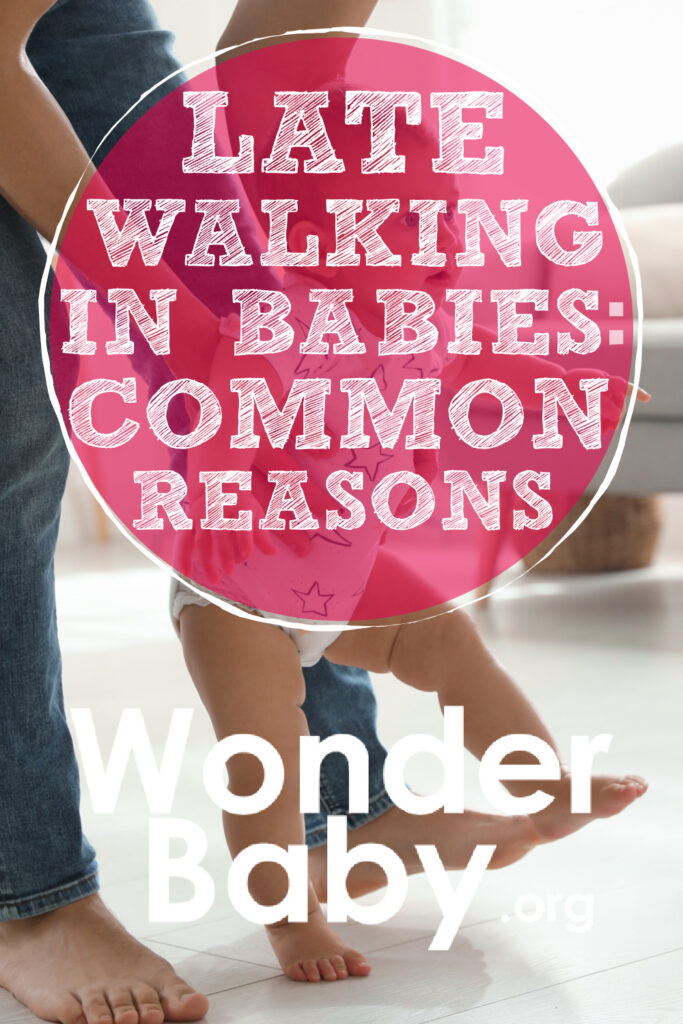
The information WonderBaby provides is not intended to be, and does not constitute, medical or other health advice or diagnosis and should not be used as such. Always consult with a qualified medical professional about your specific circumstances.
Related Posts
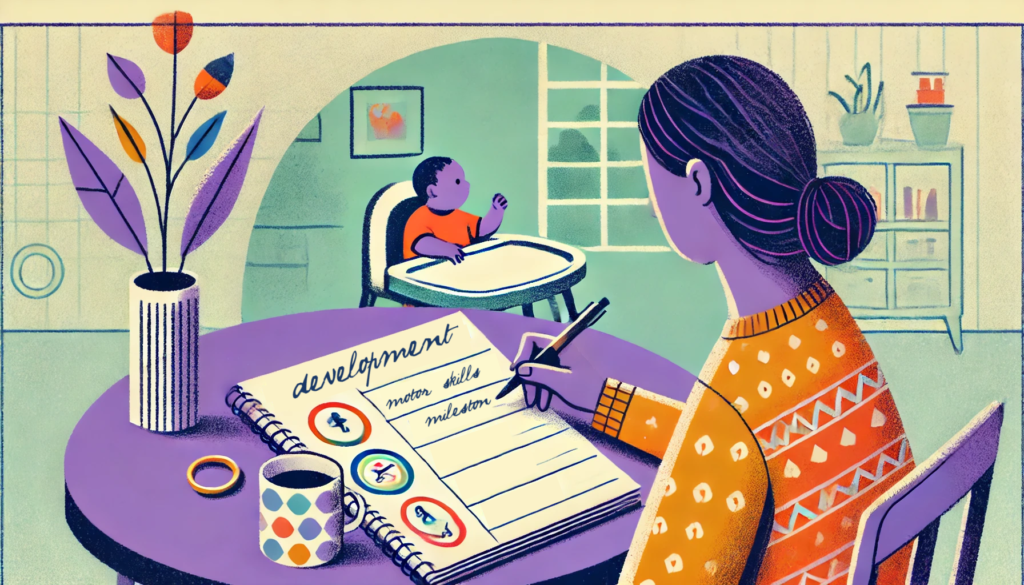
Development, Special Needs
How to Track Milestones for Developmentally Delayed Babies
Parents of developmentally delayed babies can explore practical tools and strategies to track milestones, celebrate progress, and support their child’s unique developmental journey.
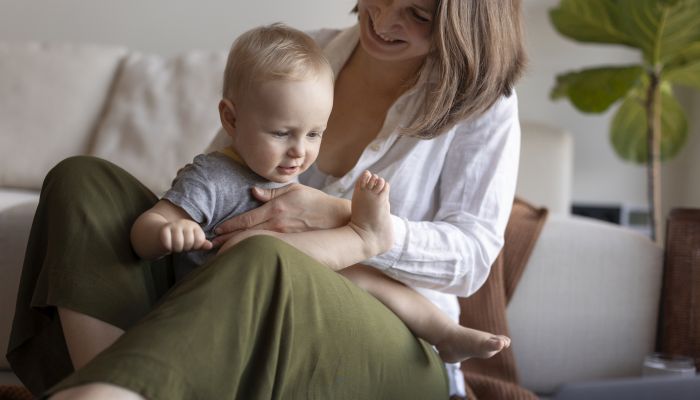
Fine and Gross Motor
5 Alternatives to Tummy Time for Babies with Motor Development Challenges
Does your baby struggle with tummy time due to motor development challenges? These alternatives to tummy time will offer the same benefits.
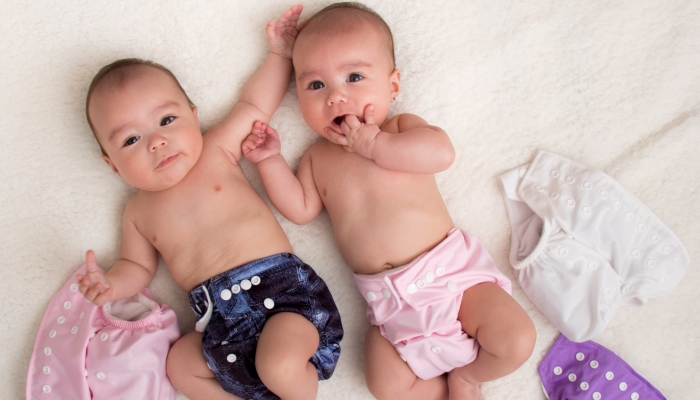
Development
Should Twins Share a Room?
Wondering if your twins should share a room? We’ll explore the pros and cons of room-sharing for twins right here before you make your decision.